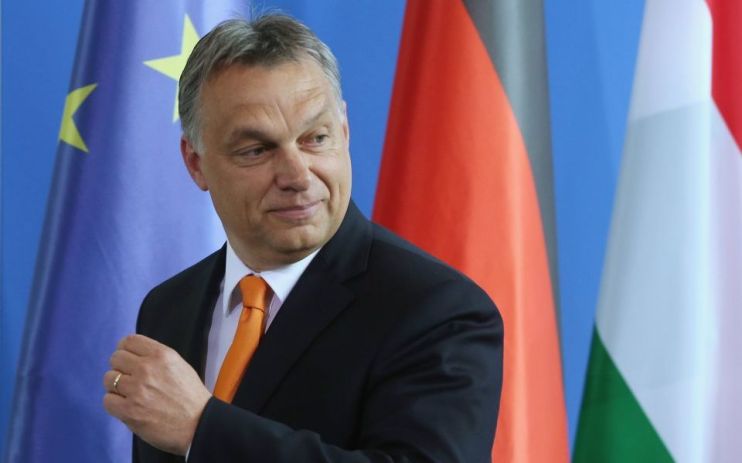Hungary names its price as country holds fresh talks with EU over Russian oil ban

Europe’s game of energy brinkmanship continued today, with the continent’s trading bloc holding talks with Hungary over potential financial support so that it can pass through an embargo on Russian oil imports.
The European Union (EU) been negotiating today with Hungary over potential financial support to Budapest to lift its veto of further Russian energy sanctions, but the both sides remain split over funds for refineries, according to news agency Reuters.
This follows previous talks between Hungary’s Prime Minister Viktor Orban and European Commission President Ursula von der Leyen.
Earlier this week, Hungary’s Foreign Minister Peter Szijjarto suggested the total cost for Hungary to wean itself off Russian energy would be up to €18bn.
However, in talks with the EU, the Hungarian government has indicated that a much smaller figure could be enough in the short-term to address its concerns.
Potential figures are expected to be more in line with estimates made by Hungary’s Prime Minister Viktor Orban.
He warned earlier today that country would have to massively overhaul its energy system in order to approve restrictions on Kremlin-backed oil supplies.
This could include a hefty €550m to revamp its refineries to comply with the embargo and another €220m for a pipeline from Croatia.
It suggested it may also need additional funds to cope with a potential surge in oil prices if the ban on Russian imports is confirmed, according to news organisation Bloomberg.
The EU is pushing to include a phase-out of Russian oil supplies – in line with announced plans to cut off coal imports – in a sixth package of sanctions following the invasion of Ukraine.
However, it needs the measures to be backed unanimously in order to go through.
The bloc currently depends on Russia for around a quarter of its crude oil supplies.
Splits over sanctions deepen EU rifts
Bulgaria, Slovakia and Czechia have secured extensions to the planned-phase out, and have been given two years rather than six months to discontinue Russian oil buying.
However, Hungary also wants oil arriving pipelines to be exempted from the measures, and for restrictions to focus on shipments instead.
Polish premier Andrzej Duda has called for the EU to unlock funds for Hungary to ensure it can back the sanctions and avoid severe economic hardship.
He said: “Please remember that it will be hard for the Hungarians to diversify if European recovery funds remain blocked.”
The European Commission has held back pandemic recovery funds from Hungary and Poland in a dispute over the rule of law – amid concerns over corruption and media pressure.
Orban has also faced severe criticism from within the EU for his refusal to back the ban, with Lithuania’s foreign affairs minister accusing the country of holding the bloc “hostage”.
Nevertheless, the EU is expected to eventually announce new investments to appease countries most reliant on Russian energy and secure an agreement.
As for potential ramifications from oil sanctions, Investec expects prices to remain elevated regardless due to capacity issues with Russian pipelines
Nathan Piper, head of oil and gas research at Investec, told City A.M: “It is our view the rise in oil prices is more fundamentally underpinned than European gas prices. So although the threat of EU sanctions has impacted oil prices they are still to fully come into effect. However lack of access to western technology is likely to reduce Russian production capacity medium term whether or not sanctions are implemented.”